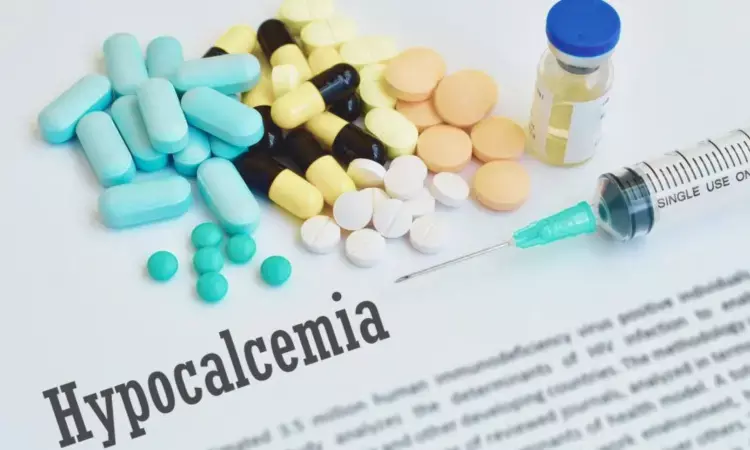- Home
- Medical news & Guidelines
- Anesthesiology
- Cardiology and CTVS
- Critical Care
- Dentistry
- Dermatology
- Diabetes and Endocrinology
- ENT
- Gastroenterology
- Medicine
- Nephrology
- Neurology
- Obstretics-Gynaecology
- Oncology
- Ophthalmology
- Orthopaedics
- Pediatrics-Neonatology
- Psychiatry
- Pulmonology
- Radiology
- Surgery
- Urology
- Laboratory Medicine
- Diet
- Nursing
- Paramedical
- Physiotherapy
- Health news
- Fact Check
- Bone Health Fact Check
- Brain Health Fact Check
- Cancer Related Fact Check
- Child Care Fact Check
- Dental and oral health fact check
- Diabetes and metabolic health fact check
- Diet and Nutrition Fact Check
- Eye and ENT Care Fact Check
- Fitness fact check
- Gut health fact check
- Heart health fact check
- Kidney health fact check
- Medical education fact check
- Men's health fact check
- Respiratory fact check
- Skin and hair care fact check
- Vaccine and Immunization fact check
- Women's health fact check
- AYUSH
- State News
- Andaman and Nicobar Islands
- Andhra Pradesh
- Arunachal Pradesh
- Assam
- Bihar
- Chandigarh
- Chattisgarh
- Dadra and Nagar Haveli
- Daman and Diu
- Delhi
- Goa
- Gujarat
- Haryana
- Himachal Pradesh
- Jammu & Kashmir
- Jharkhand
- Karnataka
- Kerala
- Ladakh
- Lakshadweep
- Madhya Pradesh
- Maharashtra
- Manipur
- Meghalaya
- Mizoram
- Nagaland
- Odisha
- Puducherry
- Punjab
- Rajasthan
- Sikkim
- Tamil Nadu
- Telangana
- Tripura
- Uttar Pradesh
- Uttrakhand
- West Bengal
- Medical Education
- Industry
Severe hypocalcemia linked to transient ischemic attack, suggests study

Indonesia: Evidence from available literature has suggested a possible link between severe hypocalcemia and transient ischemic attack (TIA) that occurred in a patient.
The aim of the study, published in Narra J, was to present an individual experiencing a transient ischemic attack that possibly occurred due to severe hypocalcemia associated with hypoparathyroidism after total thyroidectomy. The researchers also explored the available evidence of its cause-effect relationship through available literature.
Transient ischemic attack, also known as a mini-stroke, is a transient episode of neurological dysfunction that often lasts for less than 24 hours, caused by a temporary blood flow blockage to a certain part of the spinal cord, brain, or retinal ischemia without tissue injury or acute infarction.
Hypocalcemia and TIA are different medical disorders; however, limited evidence indicates a possible link between the two. The underlying pathomechanisms by which hypocalcemia may lead to cerebrovascular damage are difficult to comprehend.
Hendra Zufry, Universitas Syiah Kuala, Banda Aceh, Indonesia, and colleagues presented the case of a 68-year-old man presented to Dr. Zainoel Abidin Hospital, Banda Aceh, Indonesia, with complaints of weakness, particularly in the right limb that worsened in the last week.
The patient experienced unconsciousness for an hour before admission; anterograde amnesia, and disorientation over the time of recovering of consciousness. Other complaints were numbness in both arms and legs, frequent muscle cramps, swallowing difficulty, dizziness, vomiting, and nausea.
The patient had a history of total thyroidectomy for a large struma diffuse 18 years ago and was prescribed several medications. However, the patient was overwhelmed by forgetfulness, which increased in frequency in recent months resulting in medication nonadherence.
The vital signs were stable, and Chovsteck's sign was positive. The Montreal Cognitive Assessment (MoCA) showed impairment in the executive/visuospatial component and delayed memory.
Laboratory tests revealed altered thyroid function, severe hypocalcemia, elevated D-dimer and fibrinogen, hypomagnesemia, and vitamin D deficiency. Severe hypocalcemia and TIA were proposed as the diagnosis. Prompt initiation of appropriate treatment, including anticoagulation, calcium supplementation, and neuroprotective agents, led to significant clinical improvement.
In conclusion, the authors stated that permanent hypoparathyroidism is prone to chronic hypocalcemia, which necessitates lifetime treatment. Evidence suggests the possibility of the relationship between hypocalcemia and TIA, although the exact pathophysiological mechanism of how severe hypocalcemia could cause TIA is not well understood.
"Therefore, it is critical to regularly monitor the calcium levels in patients with a thyroid or parathyroid surgery to avoid transient ischemic attack and other hypocalcemia-associated complications. Calcium supplementation is the most effective strategy to date," the researchers wrote.
Reference:
Zufry H, Debbyousha M, Firdausa S, et al. Severe hypocalcemia as a cause of transient ischemic attack? A debatable case and evidence from literature. Narra J 2023; 3 (2): e228 - http://doi.org/10.52225/narra.v3i2.228.
Dr Kamal Kant Kohli-MBBS, DTCD- a chest specialist with more than 30 years of practice and a flair for writing clinical articles, Dr Kamal Kant Kohli joined Medical Dialogues as a Chief Editor of Medical News. Besides writing articles, as an editor, he proofreads and verifies all the medical content published on Medical Dialogues including those coming from journals, studies,medical conferences,guidelines etc. Email: drkohli@medicaldialogues.in. Contact no. 011-43720751
Next Story


